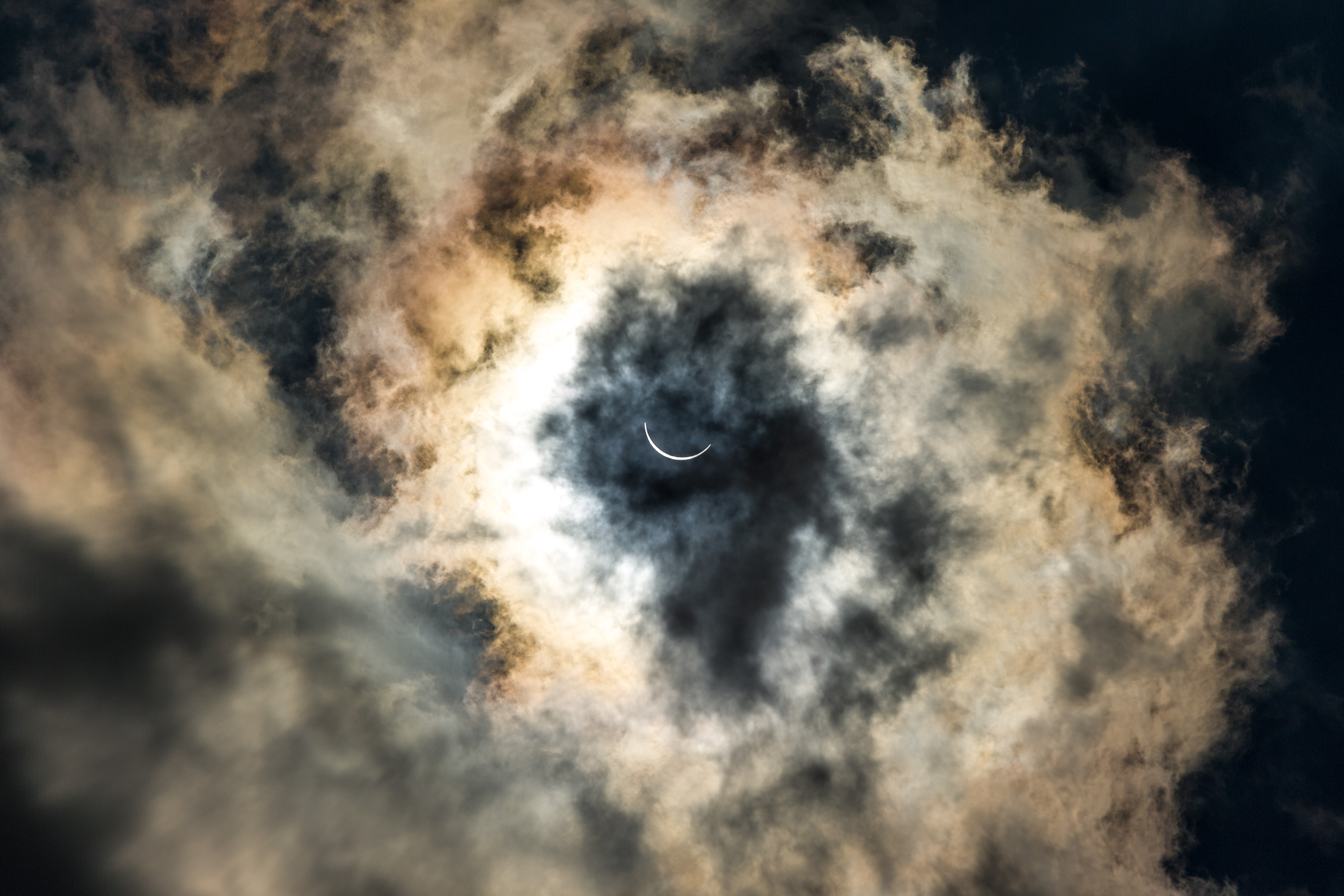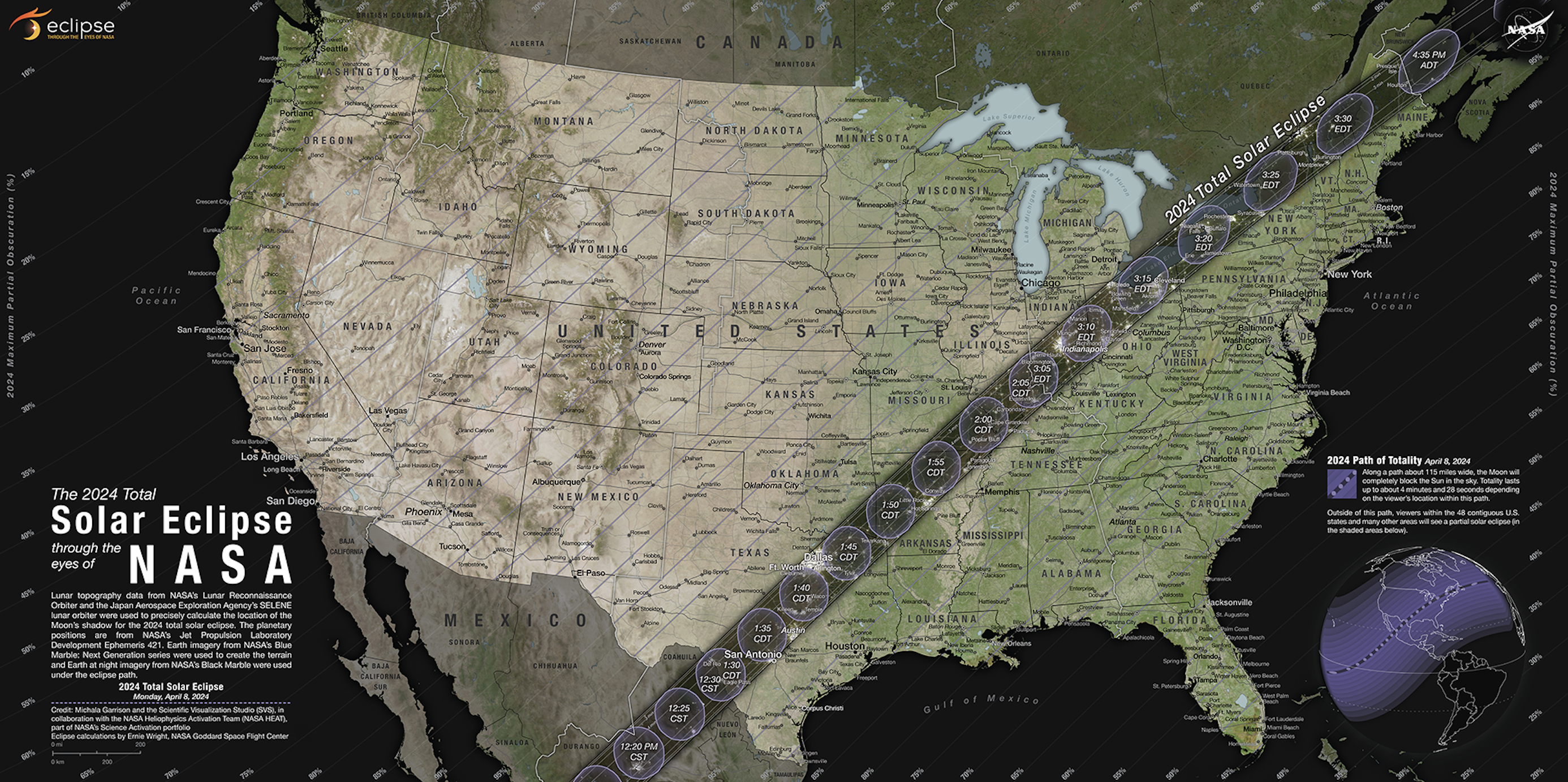A total solar eclipse is a time of scientific discovery, confirming Albert Einstein's theory of general relativity in 1919, but the astronomical phenomenon can also be a time of personal discovery, just as it was for Dragomir Davidovic.
An associate professor in the School of Physics whose expertise lies outside of astronomy, Davidovic didn't initially understand the hype surrounding the 2017 eclipse. However, he was instantly captivated as the moon passed between the sun and the Earth to reveal the star's corona.
"When I saw my first eclipse, I was surprised by its power. Nature changed around us; the birds became quiet, and all of the animals near the farm were getting ready to go to sleep. It was eerie in a way, and it's a once-in-a-lifetime event that needs to be seen," he said.
Unlike 2017, Georgia will not be in the path of totality for the eclipse occurring on Monday, April 8, so Davidovic and Edwin Greco, associate chair for student success, are leading a trip for 55 School of Physics students, primarily graduate students, to experience totality at the Crab Orchard National Wildlife Refuge in Southwest Illinois following an overnight stay in Nashville, Tennessee.
While the eclipse can be viewed in an urban environment, such as Atlanta, where coverage will reach 85%, Davidovic wanted to give students the opportunity to feel the eclipse's full effect on nature as he experienced it seven years ago.
"A rural setting allows you to have this true connection with nature, and it evokes this feeling of almost being a prehistoric human," he said.
In addition to the reaction of animals, Jim Sowell, director of the Georgia Tech Observatory, explains that as the eclipse reaches its peak, temperatures will drop, and planets may become visible in the darkened sky. To view the eclipse, the group will be bringing safety glasses and a telescope with the appropriate lens for direct sunlight viewing.
The idea for the trip came from a spontaneous conversation between Davidovic and School Chair Feryal Özel in August, and initially, Davidovic wondered if enough students would share his enthusiasm for such an adventure.
"My biggest worry was that we wouldn't get enough students to sign up, but as it turned out, I was totally wrong," he said. "It goes to show there is a broad interest in this natural phenomenon. You don't have to be an astronomer; we have people signed up across many different fields,” he said.
Among those immediately interested in joining the excursion was Nadia Qutob, a graduating physics major with an emphasis in astrophysics and a member of the Georgia Tech Astronomy Club.
"Everyone in the world at some point in their lives looks up at the sky and wonders what is up there. Space has an incredible ability to unite us in our shared curiosity. It is deeply inspirational to me that so many people, especially young people, are excited about the eclipse. I hope it will lead to more interest in space research in the future," she said.
Student interest in the eclipse is evident, with another trip being led by the Astronomy Club, which will be heading to the Ozarks to witness the event.
Following Monday’s total solar eclipse, the continental U.S. will not see another of its kind until 2044. In the meantime, Davidovic's hobby has also influenced his academic work. He is now conducting research into the effects of merging black holes on quantum computers and continues to study additional astrophysical theories.
For More Information Contact
Steven Gagliano - Institute Communications




